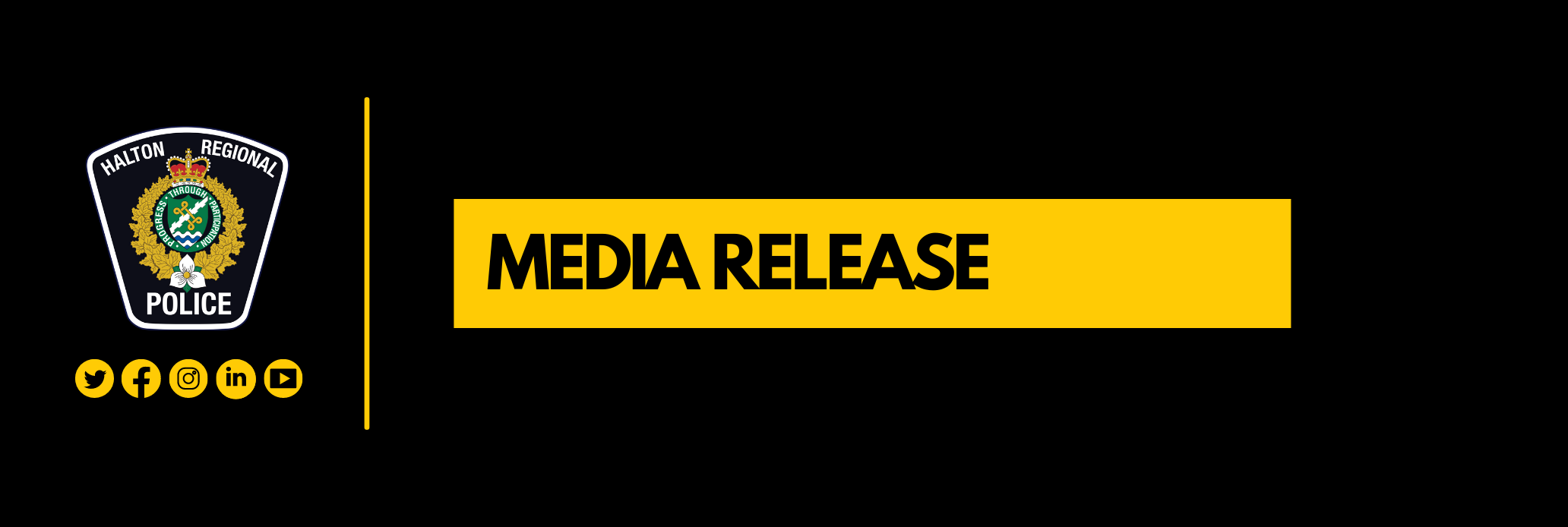
As part of its ongoing response to the opioid crisis facing Halton and beyond, the Halton Regional Police Service (HRPS) is further expanding its lifesaving naloxone kit distribution program to include select frontline officers and support personnel who work closely with those at risk of drug poisoning.
Beginning on February 6th, those assigned to the Service’s Mobile Crisis Rapid Response Team (MCRRT), Community Mobilization Officers, and support workers will be part of a new pilot program offering free naloxone kits to everyone they interact with in the course of their day-to-day work, no questions asked, no records kept. Each of these 30 officers and personnel have received in-depth training in this vital first aid tool. This training not only includes how to use the kits, but also how to connect those interested with additional community supports.
In a current pilot program with Halton Region Public Health, naloxone kits are offered free-of-charge and confidentially to everyone through HRPS’ Central Lock-up (CLU) in Oakville. Since the program was introduced in November 2022, more than 180 members of the public have accepted the vital first aid tool from the Service’s 18 specially-trained Special Constables.
Naloxone is a drug that can temporarily reverse the effects of an opioid drug poisoning. Once administered, it will begin to work in one to five minutes and stays active in the body for 30 to 90 minutes, meaning it can save the life of anyone at risk of an overdose.
Each kit contains two doses of naloxone nasal spray, one pair of non-latex gloves, one rescue breathing barrier, and a pamphlet containing directions for use. Alongside each kit, individuals will receive a card with additional resources, including links to HRPS’ Overdose awareness webpage, and to Halton Healthcare’s ‘How to use a naloxone kit’ instructional video.
All uniform HRPS members have been trained in the administration of naloxone since 2018.
“As a police service, we are committed to keeping those we serve safe,” said Stephen Tanner, Chief of Police. “The success of our naloxone kit distribution program in CLU shows that members of the public want this lifesaving drug, and we are proud to work with our community partners across Halton to not only increase access to it but to reduce any associated barriers and stigma as well.”
The HRPS’ administration of naloxone across the front lines, and distribution of naloxone kits by CLU, and now, MCRRT, Community Mobilization Officers, and support personnel is supported by the Halton Police Board, Halton Region Public Health, and the Ministry of Health’s Ontario Naloxone Program.
Additional ways to help stay safe
In addition to ensuring individuals carry Naloxone if they use drugs or if they have a friend or family member who does, the HRPS also advises to:
- Never use alone
- Go slow
- Know and watch for the signs of an overdose
- Do not run – call 9-1-1
In the event of a drug poisoning, HRPS frontline officers, and other first responders in Halton, carry naloxone and want to assist. The Good Samaritan Drug Overdose Act provides broad legal protections for anyone seeking emergency support during a drug poisoning, including the person experiencing a poisoning. This means citizens, including youth, will not be charged for offences such as simple possession for calling 9-1-1 in an emergency.
Remember, an opioid-related drug poisoning is a medical emergency. Know the signs of an opioid drug poisoning and call 9-1-1 right away:
- Difficulty walking, talking, or staying awake
- Blue lips or nails
- Very small pupils
- Cold and clammy skin
- Dizziness and confusion
- Extreme drowsiness
- Choking, gurgling or snoring sounds
- Slow, weak, or no breathing
- Inability to wake up, even when shaken or shouted at
For more information about drug poisoning awareness, please visit haltonpolice.ca/overdoseawareness
Media Inquiries:
Halton Regional Police Service
Media Relations
905-825-4899
corpcomm@haltonpolice.ca
 I Want To
I Want To





 Subscribe to this Page
Subscribe to this Page